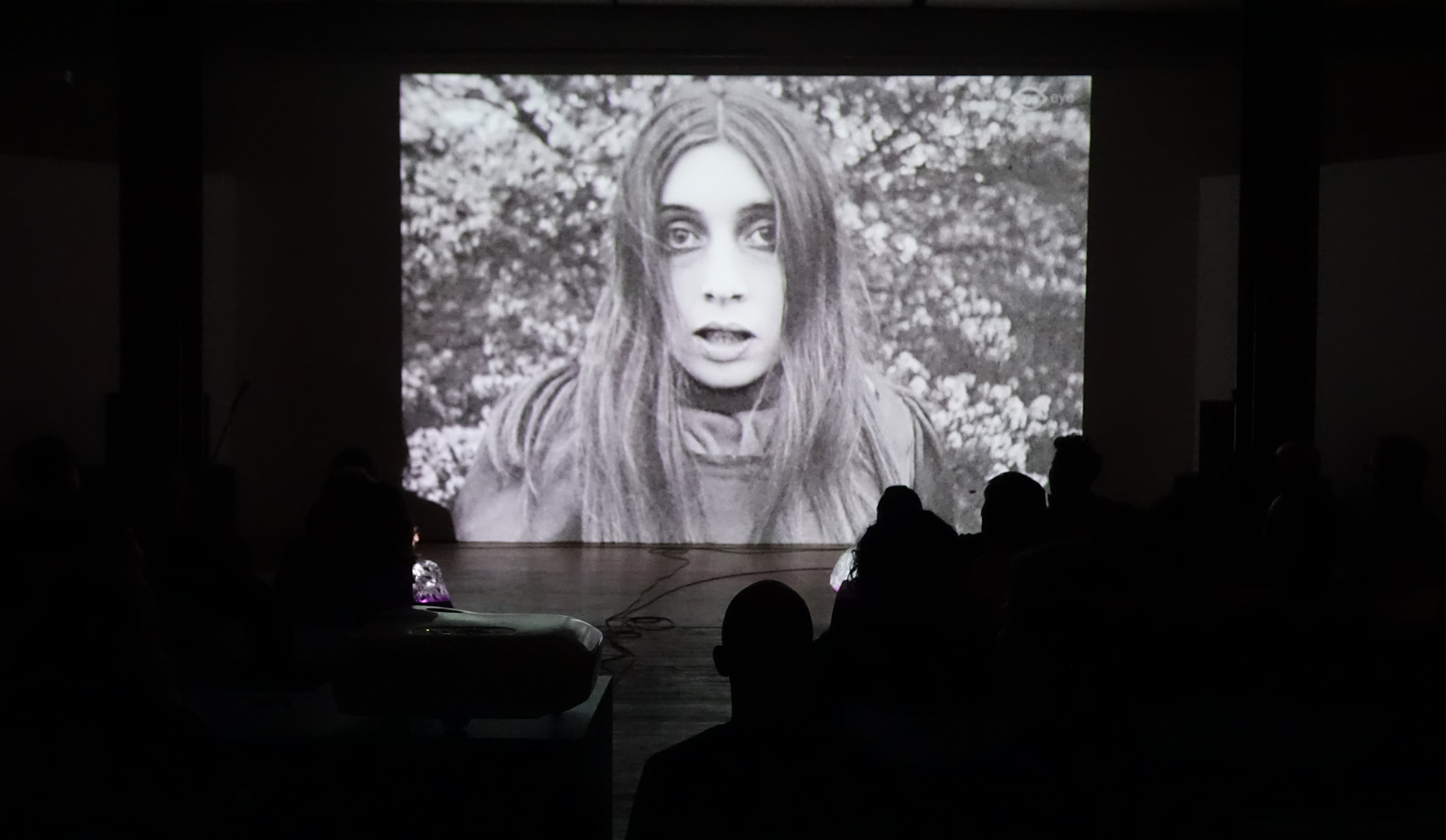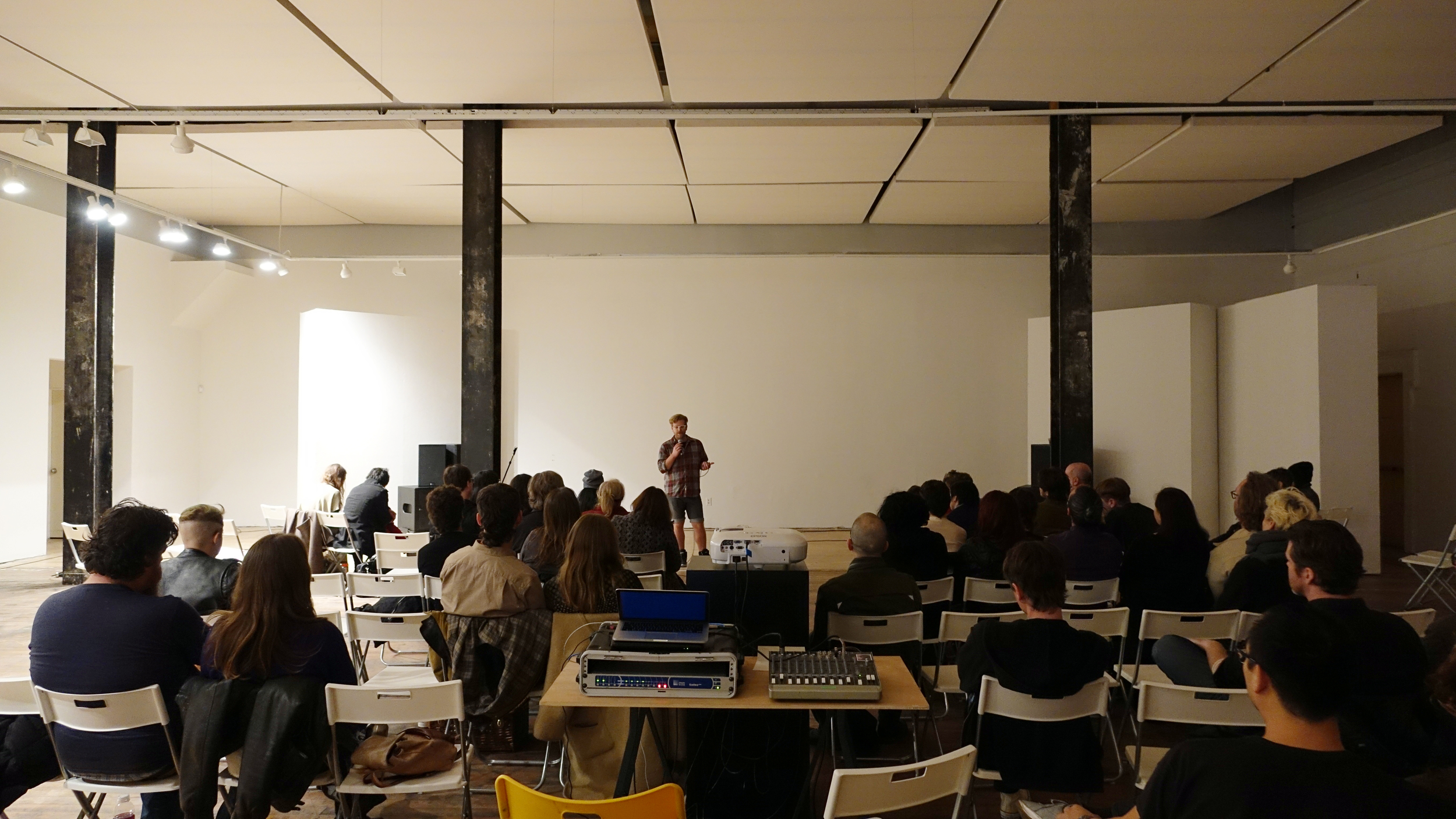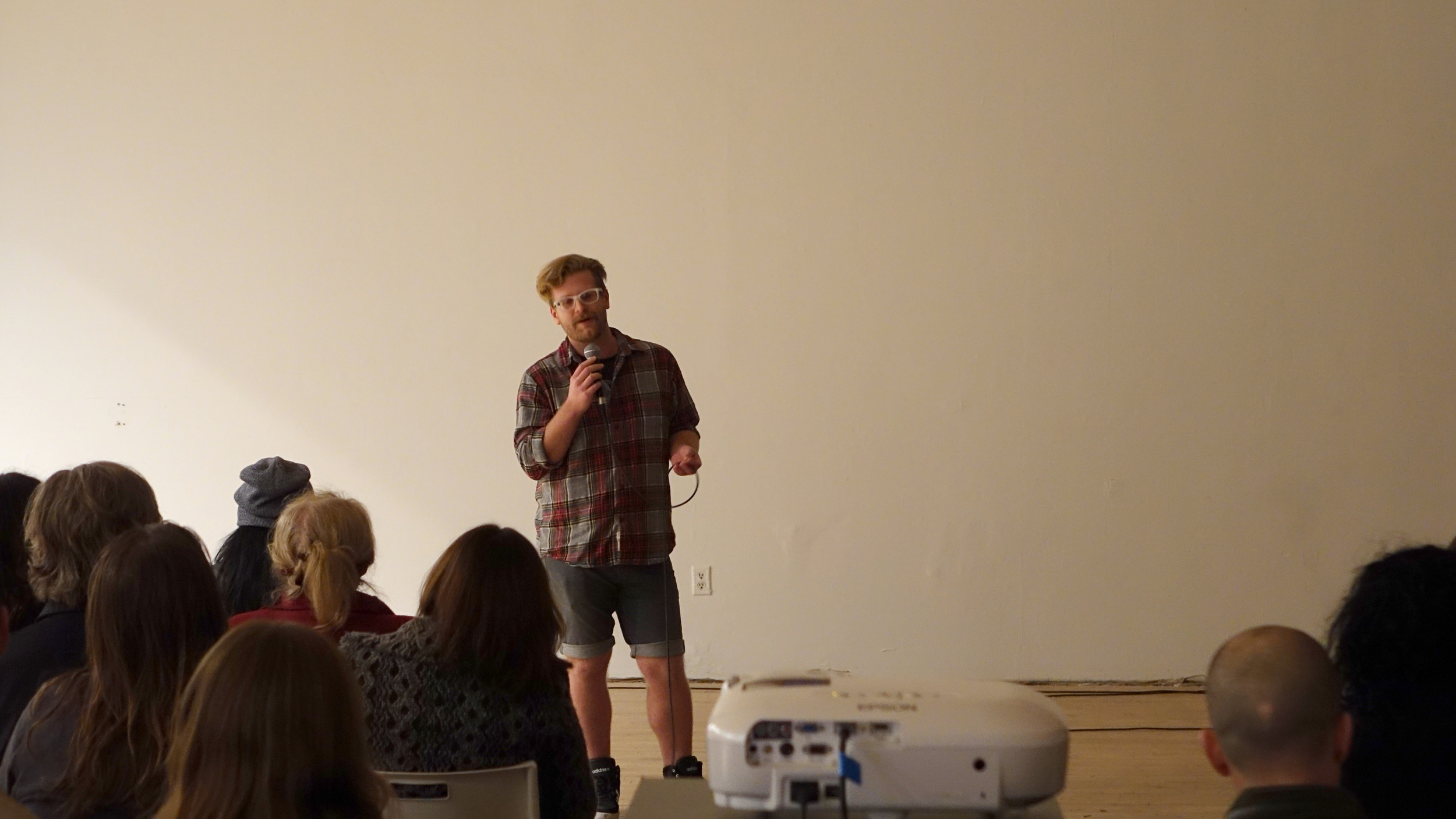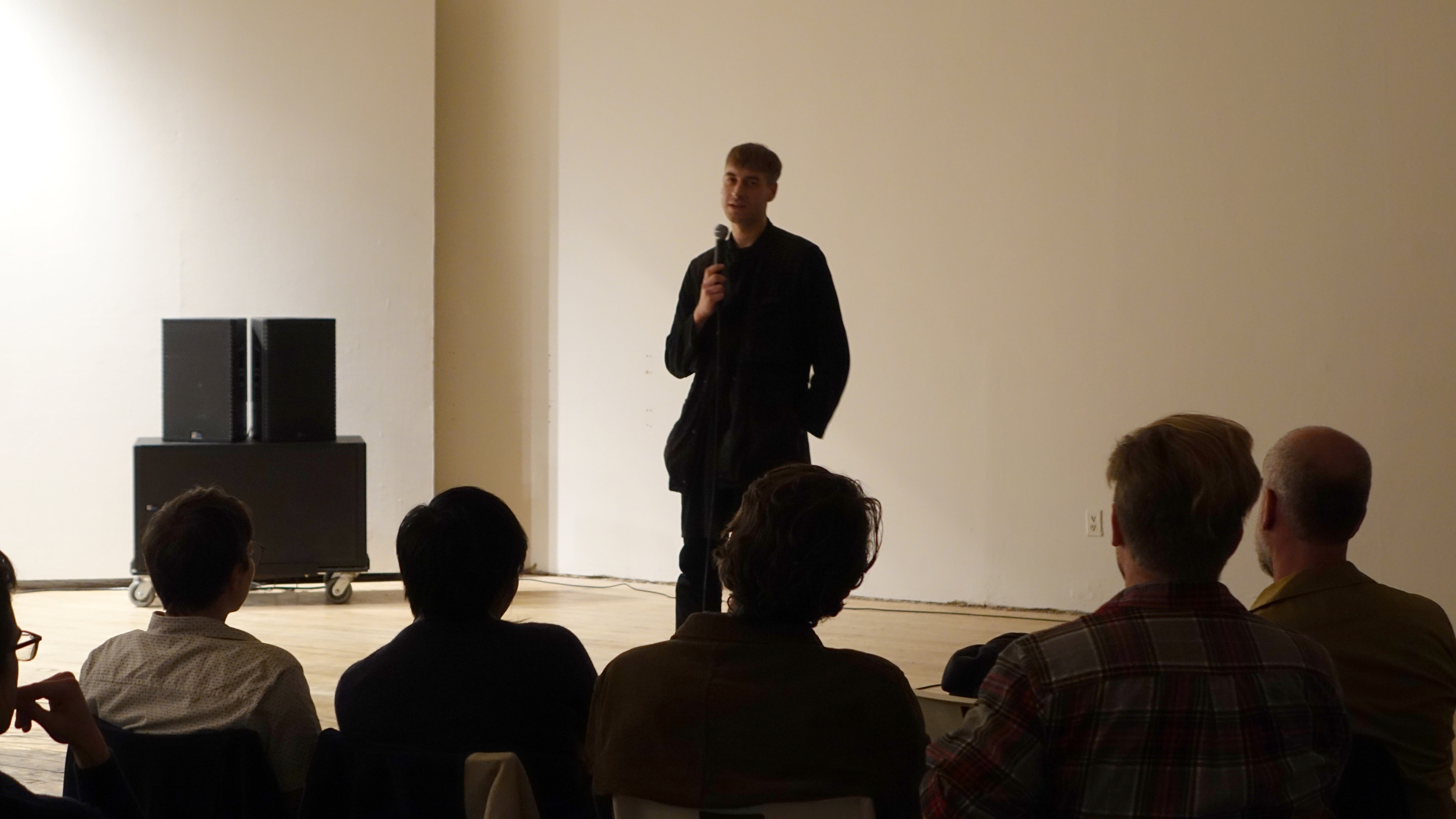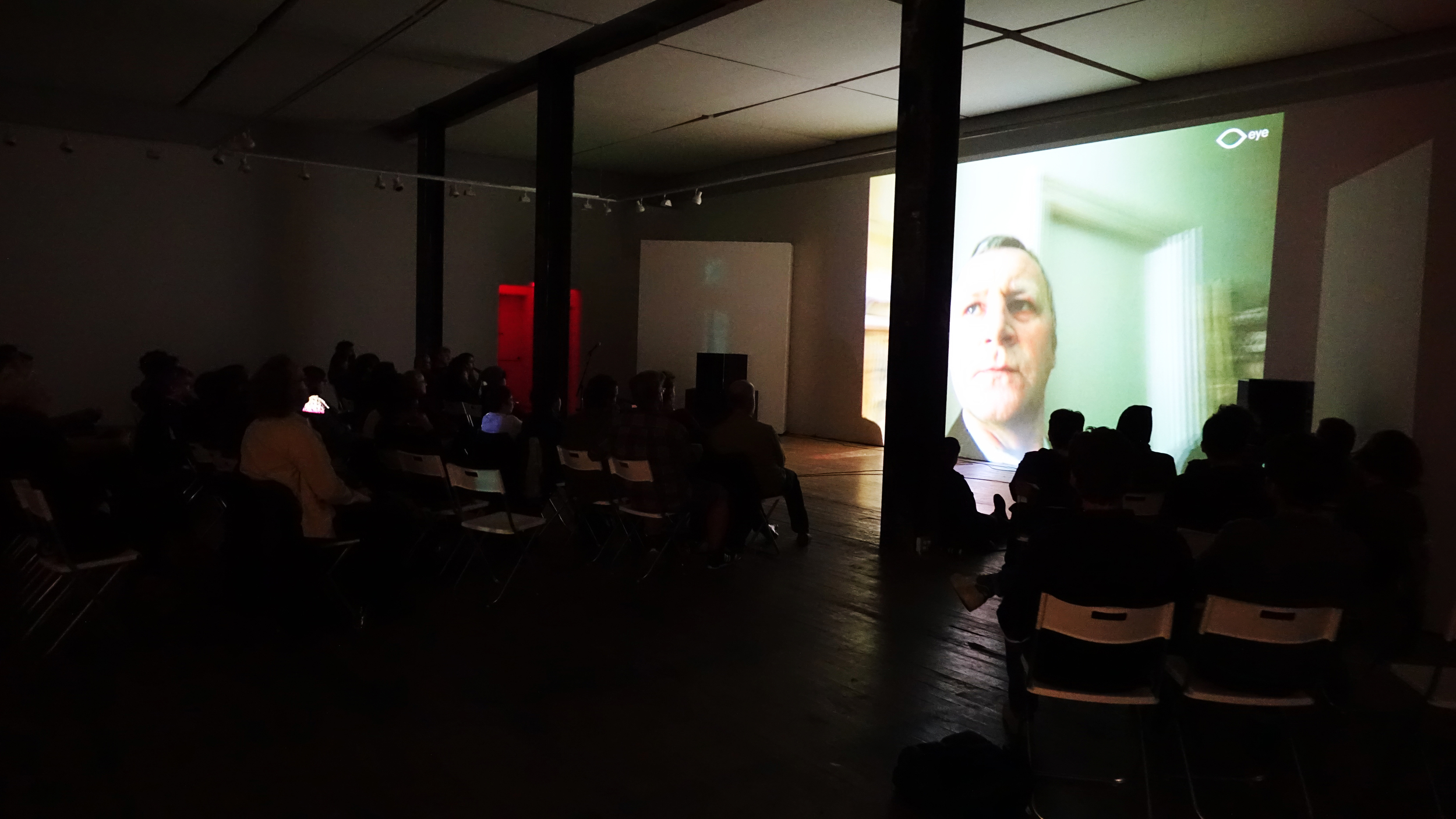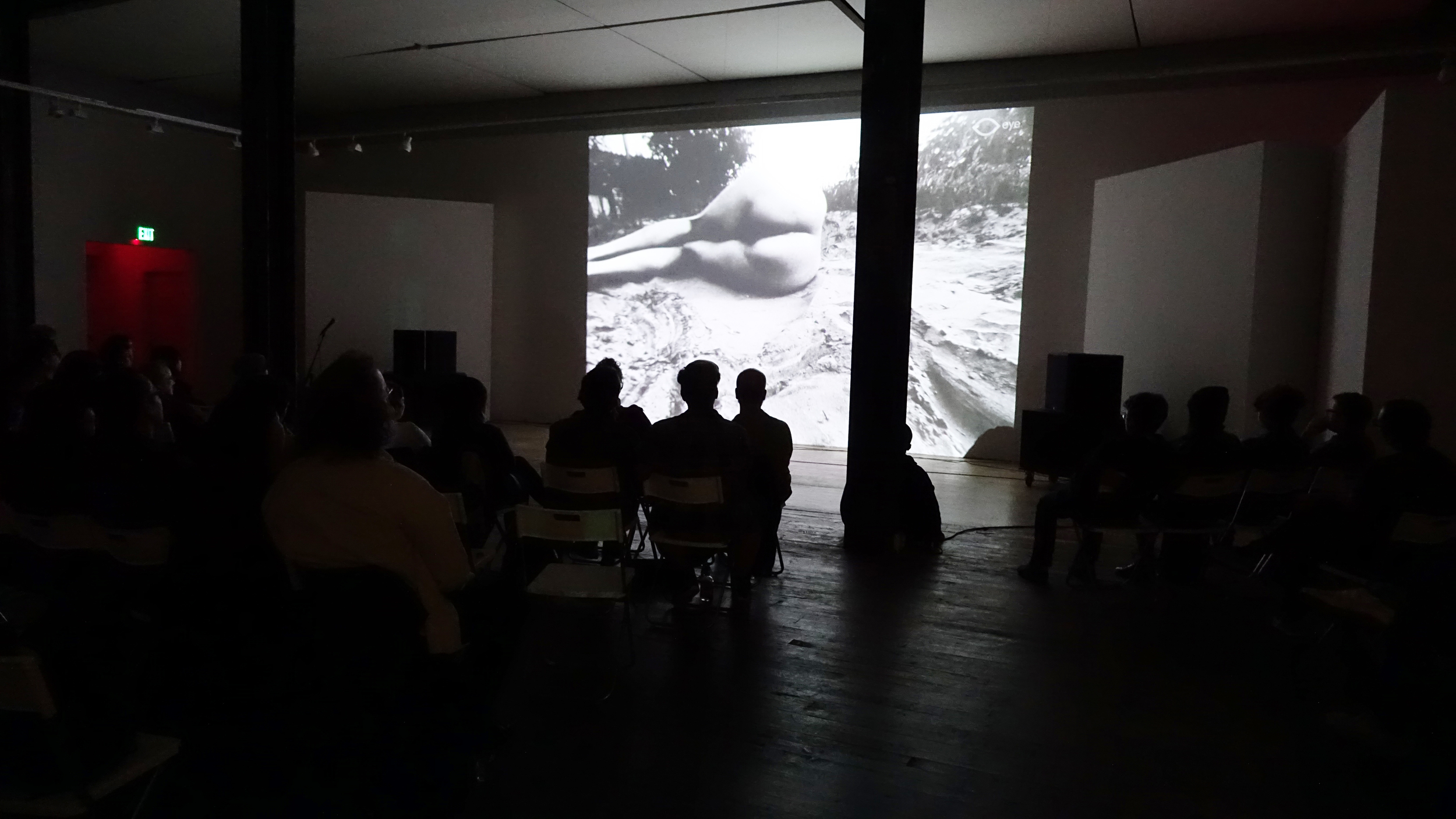Courtesy of EYE, Filmmuseum
$15 General Admission / Free for Members of The Lab
Medea is Frans Zwartjes' adaptation of Euripides' tragedy, originally produced for stage by the actresses Josée Ruiter and Çanci Geraerdts. This marks the premiere of this newly restored masterpiece, unseen since 1989.
Zwartjes is largely known for the stream of voyeuristic, sexually charged and hugely influential experimental films he made in the 1960’s and 70’s. Hailed by Susan Sontag as "the most important experimental filmmaker of his generation," Zwartjes is also a painter, craftsman and musician: a polymath who defies categorization.
The feature will be preceded by “film fragments,” a selection of never-before-seen cinema sketches by Zwartjes. Medea will be introduced by Zwartjes' collaborator and producer Schtinter, curator at http://purge.xxx.
Introduction by Mike Kitchell:
"Hi! Frst of all, thank you so much, everyone, for coming. I'm super, super excited about this event tonight. Sincere thanks to The Lab, and Dena, for letting this happen here; sincere thanks to the EYE Film Institute in Amsterdam—the film belongs to them, they restored it, I think they have all of Zwartjes's work. And, finally, thank you to Stanley Schtinter for kind of becoming the only current advocate for Zwartjes's work in this sad sad day and age where unless a film has been canonized, even in the marginalized world of Avant-Garde film, nobody remembers it.
I'm not gonna talk for very long because the film is much more exciting than anything I have to say. There're two things that we're screening tonight. The first is a collection of fragments and tableaus that Zwartjes shot in the 60s and 70s which were never completed as films. Schtinter scored the films with Zwartjes's music it; some recordings from the time the fragments were shot, while some of the recordings consist of music that Zwartjes is making contemporaneously. The second part of the program is Zwartjes's film Medea. As far as we could figure out, this is the West Coast premiere, and up until five nights ago when it screened in NYC, the film hadn't screened at all since 1989. So what that means is that this is crazy rare shit. Susan Sontag was a big fan of Zwartjes, and the last time Medea was screened, in 1989, was when she screened it as part of a series she programmed of her favorite films. The most recent film that was part of that program was E. Elias Merhige's Begotten, and the earliest being Pabst's Westfront 1918.
Pardon the indulgence, but I'm going to briefly dip into biography. The first film I ever saw by Frans Zwartjes was a film called Living. When Zwartjes is known at all, Living is generally the film that people are familiar with. It's on Ubuweb, you can probably see it on YouTube at this point, so it's accessible—there's also a legitimate DVD release from Moskwood (in Amsterdam), which, if you like what you see tonight, if you like anything you've seen of Zwartjes's before, you should pick up, because the more people that buy his films, the more likely, I would would hope, that more of them will become available.
The first time I saw Living was when I had made a conscious decision to move away from being obsessed exclusively with horror films and started exploring other genres; specifically experimental film. When you're 20 years old, you live in the Midwest and you're nowhere near anywhere with a vibrant experimental film community—what do you do? This was before there was any sort of market for experimental film on DVD (in fact it was before even a lot of euro-horror was on DVD) so I spent my time trading VHS tape dubs—early bootleg culture, of course, is actually where most of the interesting films [that one downloads from torrent sites today] come from. A screencap from Living tuned me into it, and then, when I watched the film after tracking it down, it was completely unlike anything I had seen before. That seems almost like an empty statement, something that gets thrown around often in stunted film reviews, but, for me, Living was the introduction of an alien world of film that I'm unsure I would have otherwise discovered. This is not just the shock of moving from narrative cinema to experimental cinema either, for Living is a major departure from more known avant-garde works.
In the film, the camera is handheld by Zwartjes himself. The film is shot with a very wide angle lens—which I've heard described as the widest lens you can get without succumbing to total fisheye distortion—and the film consists of nothing but, arguably, Zwartjes exploring the space of the house that he's about to move into with his wife Trix. The music in the short, the music is amazing. The image and music in his films are really equal in terms of being astonishing, and both are equally unlike, as I said before, anything else. So long story short: I became obsessed with Living, tracked down as many of Zwartjes's films as I could, a DVD came out and it was great. There's a feature-length documentary included on the DVD set about Zwartjes—and there's a clip from the film we'll be seeing tonight, Medea, and I think it's only about 30 seconds long—at the time, this film was totally unavailable, there was nothing, no information on Zwartjes available anywhere online, there's very little information about him in books even (there's an interview with him in a book on Dutch experimental film that came out around 2006, and as far as I know that's the only English-language translation of anything he's said, really). The 30 second clip of Medea introduced something to me that I was fascinated by, and Medea became one of those films that I harbored a deep desire to see. Of course, I never thought I'd actually get the chance.
A little about Zwartjes himself: Frans Zwartjes was one of the first people in Amsterdam to introduce an idea of film—as someone teaching film academically—where you don't have to follow “rules,” where you can do what you want for any reason. Zwartjes instructed students to make films that were their own, to make films not based on some hegemonic assumption that there need be narrative, or that experimental film needs to function in a certain way—and obviously, in Zwartjes's films of the 60s & 70s there's a resistance to the closed world of structuralism.
Zwartjes has had an amazingly idiosyncratic film career, he's made lots of films (not many of which are available), but what we're watching tonight, Medea, is actually—in many ways—simultaneously a departure from most of his known work and at the same time perfectly exemplary of his work: you can see ten seconds of Medea and, if you're familiar at all with his work, you can recognize that it's his film. One thing that sets this film apart from most of his work is the fact that it has dialog. The film itself is based on Euripedes' Medea, and this film is based on a theatrical adaptation initially staged by the two women who are the only actresses in this film—Josée Ruiter and Çanci Geraerdts. I'm not sure how their work moved from theatrical adaptation to film adaptation lensed by Frans Zwartjes, but I'm certainly glad it happened!"
